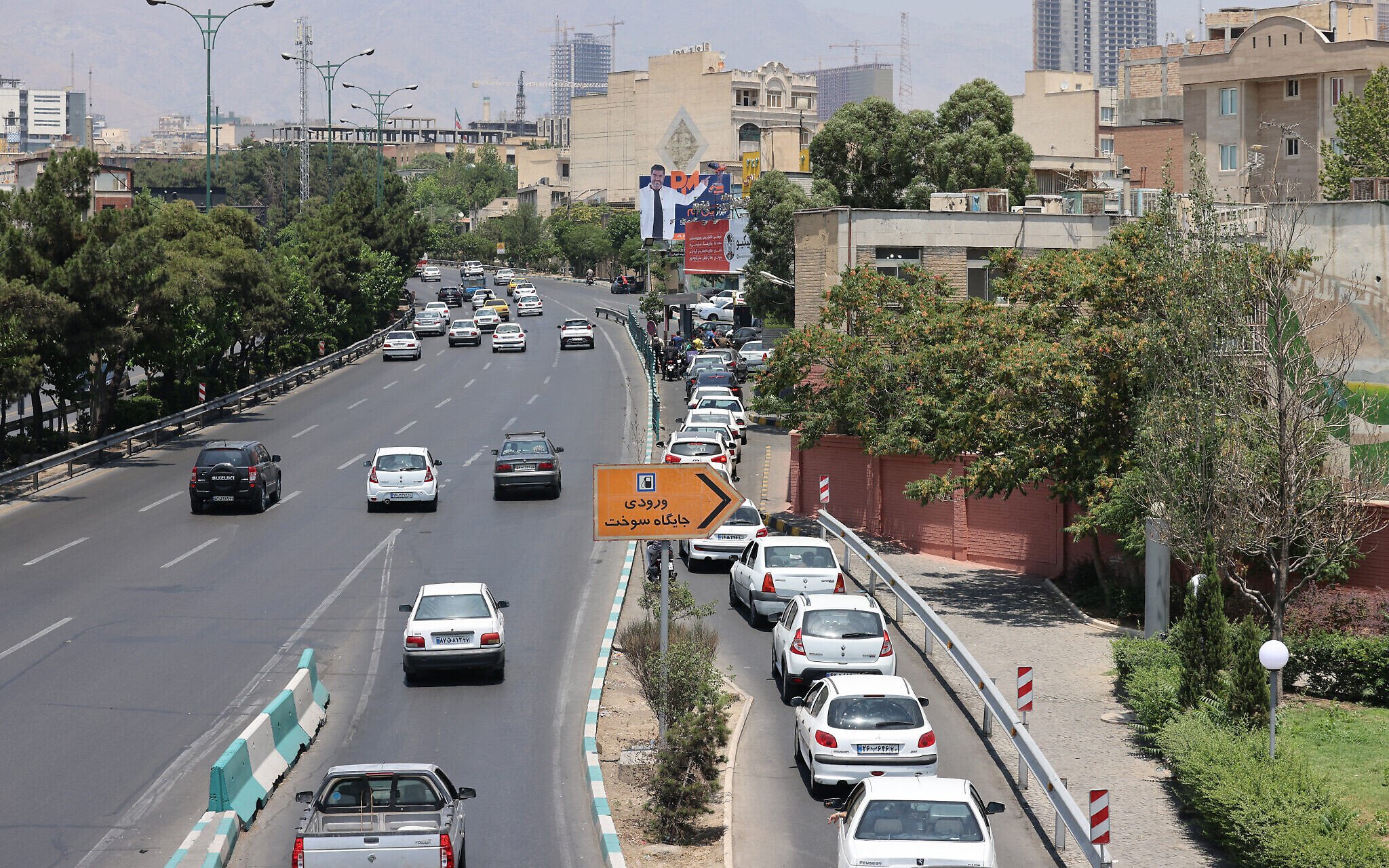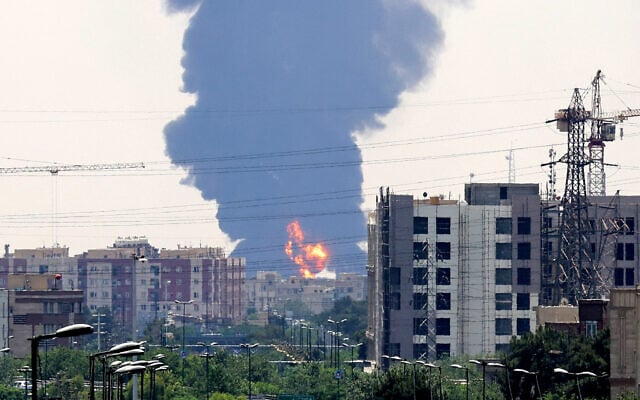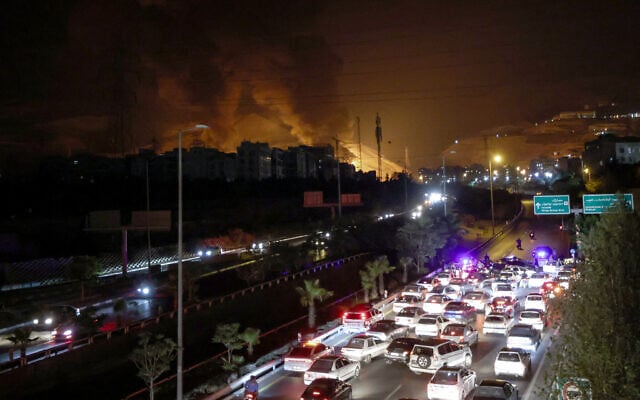



Some Iranians began to flee the capital, Tehran, on Sunday as Israeli airstrikes continued to target military infrastructure and nuclear facilities across the Islamic Republic for a third day.
Citing residents, CNN said some were trying to flee to the country’s rural north, but roads have been paralyzed by traffic. A reporter for the German press agency dpa witnessed kilometer-long lines for gas in Tehran.
“I don’t want to leave my home, but I am not going to put my young children in this situation,” a father of two, who didn’t want to be named, told CNN. “I hope that the US steps in to stop the attacks between both countries.”
The man said his family is worried because regime officials reside within dense upper-middle-class neighborhoods, endangering civilians.
As it launched its surprise onslaught on Iran early Friday, the Israeli Air Force carried out targeted strikes on the homes of top Iranian military officials and scientists, with some images showing precise attacks on specific apartments in residential buildings.
Following overnight strikes between Friday and Saturday on Iranian air defenses, the Israel Defense Forces spokesperson declared the air force had achieved air superiority over Tehran.
On Sunday, the Israel Defense Forces issued an unprecedented warning for Iranian civilians to evacuate areas around weapons factories.
Trying to allay fears, Iranian government spokesperson Fatemeh Mohajerani told state TV that Iranians can seek shelter in mosques and schools during Israeli attacks, as well as subway systems, which will be open at all times from Sunday night.
“There is no problem with the provision of food, medicine, fuel,” she added.
Tehran’s City Council Chairman Mehdi Charman said the city was seeking alternatives as it lacked bomb shelters.
“Unfortunately, we in Tehran and in our other cities do not have shelters,” he said at a press conference, noting that the death toll in Israel was lower due to the country having bomb shelters and holding regular exercises for attacks.
Chamran said basements were an option, and that in an “extreme” situation, the underground metro could be used, but it would need to be shut down.
“We could prepare underground parking lots as well, similar to when Saddam bombed us,” Chamran said, referring to the war with Iraq under former dictator Saddam Hussein in the 1980s.
Years of hostility between Israel and Iran exploded into open conflict early Friday morning when Israel launched a major offensive against Iran and its nuclear program, hitting nuclear sites, missile bases, and top military officials.
Iran responded with overnight ballistic missile barrages on Friday and Saturday, killing at least 13 people in Israel and injuring hundreds.
Israel said it had no choice but to attack Iran, which is committed to the destruction of the Jewish state, and that it had gathered intelligence showing that Tehran was approaching “the point of no return” in its pursuit of nuclear weapons.
Israeli military officials said that the IDF was preparing for heavy fire from Iran, but asserted that “at the end of the operation, there will be no nuclear threat” from the Islamic Republic.


